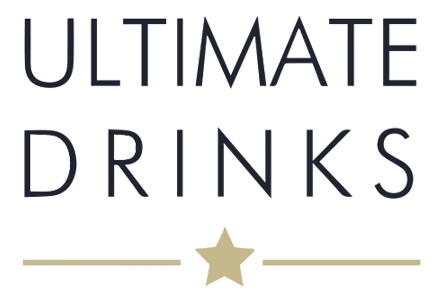ENJOY IN MODERATION
Alcohol has a legitimate role in society when it is responsibly enjoyed by adults of legal purchasing age who choose to drink. When consumed in moderation, alcohol can be part of a healthy lifestyle that includes a good diet and exercise.
Drinking responsibly means:
Drink in a pleasant, sociable way and keep up.
Drink within the dietary guidelines for moderate alcohol consumption.
Do not drink at all in situations where the effects of alcohol put a person's safety or health at risk, such as when driving, during pregnancy or in certain work situations.
As a parent, it means being aware of the risks associated with underage drinking and setting an example of moderation.
On the other hand, heavy drinking (more than 4 drinks in any day or 14 per week) is associated with an increased risk of a variety of health and social harms, including damage to your internal organs, accidents and injuries, and difficulties with function positively. in family, work and community life. Liver damage is strongly associated with long-term heavy alcohol use and can lead to cirrhosis. Scientific studies have also shown that such high consumption is associated with an increased risk of certain cancers, some cardiovascular conditions, and alcohol use disorders. A person's risk for a certain disease is also influenced by their family history of disease, genetics, current health, nutrition, and environmental and lifestyle factors.
In order for you to make an informed decision, we suggest that you follow the dietary guidelines for moderate alcohol consumption published by the national public health authorities. Lastly, for anyone with concerns about their health, we always recommend that you speak with your doctor.
ZERO ALCOHOL
In any case, there are situations when you should not drink alcohol in any way:
Below the legal drinking age
The low-risk drinking guidelines are designed for adults and not for minors who cannot handle alcohol as well as adults. They often weigh less and have less water in the body to dilute the alcohol; they have fewer enzymes that help the liver eliminate alcohol; and the developing brain is more vulnerable to damage from alcohol. Drinking at this time of physical and emotional changes, particularly heavy drinking, could have long-term negative physical and psychological consequences.For these reasons, there is a legal drinking age designed to protect growing young people from harm, such as their bodies. , brains and judgment is still developing. . Families should know and understand the laws regarding these legal age limits and how they apply to alcohol consumption inside and outside the home.
During pregnancy and breastfeeding
If you drink during pregnancy, the alcohol in your blood crosses the placenta and enters the baby's blood. Because the fetus is still developing, it takes longer for your liver to break down alcohol, which could expose your organs and tissues to alcohol. This can lead to mental and physical problems in the baby, such as fetal alcohol syndrome, and can increase the risk of miscarriages. As a safe threshold for drinking during pregnancy has not been established, the scientific community believes that abstaining from drinking is the safest option. In either case, you can always discuss your alcohol use with your doctor and get help if you need it.
Alcohol in the mother's bloodstream passes into breast milk and can cause poor diet, irritability, and sleep disturbances. Alcohol is eliminated from breast milk at the rate of one drink every two hours. Therefore, it is best to avoid alcohol before breastfeeding or to plan ahead and express milk if you drink alcohol later.
When driving a car, motorcycle, or operating machinery
Because alcohol enters your blood and brain, it affects your reactions very quickly: your reflexes slow down, your field of vision narrows, and you underestimate dangers and risks, decreasing your "thinking distance." That is why there are limits for alcoholism, measured by blood alcohol content (blood alcohol content or BAC, measured in grams of ethanol per liter of blood).
On average, each drink increases its BAC from 0.02 to 0.03g / l, thus reaching the legal limit quickly. Your BAC will also be affected by whether you've eaten, your age, size, and gender, so you can't calculate accurately and it's just not worth the risk.
When drugs / medications are used
People who take medication should be very careful and consult with their doctor or pharmacist to see if alcohol is contraindicated. When taken in combination with certain medications, particularly those commonly prescribed for epilepsy, high blood pressure, and the common cold, alcohol can cause dizziness and drowsiness. Mixing alcohol with medications for rheumatism, arthritis, pain, infections, and depression can cause serious physical and psychological problems. Alcohol can also increase the sedative effect of benzodiazepines and other drugs, increasing the risk of falls.
Alcohol dependence
To avoid physical and psychological addiction, the recommendation is that everyone refrain from drinking at least one day a week. That is another reason to have zero alcohol.
Regular binge drinking, even if you're not feeling drunk! - has short and long-term physical and psychological risks. It is important to completely stop drinking alcohol if:
- If you have had serious problems with alcohol in the past.
- If because of alcohol you have had problems at home or at work.
- If you tried to reduce your consumption and were unsuccessful.
- If you notice other people expressing concern about your drinking.
- If you feel guilty about drinking.
- If you have tremors and / or nausea in the morning.
- If you regularly drink an alcoholic drink first thing in the morning.
- If you have a health problem that could be made worse by alcohol, for example liver disease, diabetes, hypertension.


